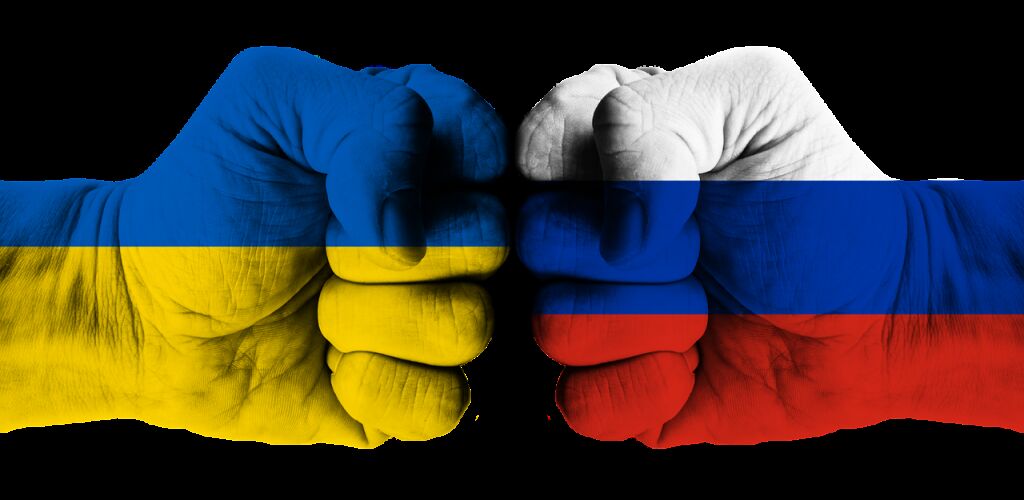No visible end?
War will end only if any of the two parties submit to fatigue, which doesn’t seem probable anytime soon; write Douglas B Atkinson & Kevin Fahey

In a matter of days, Russia's invasion of Ukraine has escalated to one of the biggest military conflicts in Europe since the Second World War. The fog of war can obscure our view of who is winning, who is losing, and how long all of this will last. While no one can provide definitive answers, academic research on war gives us some insights into how the conflict in Ukraine might unfold.
Research suggests that the path to war resembles a bargaining game, where countries compete over issues like territory and resources to patriotism or the style of governance. Rather than going to war, which is very costly, competing states prefer to settle these disagreements peacefully. Ideally, the two sides do this based upon their relative probabilities of winning a hypothetical war. Sometimes this is not possible and war occurs.
War is, usually, the result of one of three problems. First, states might not have enough information to assess their relative probabilities of success.
Second, the two sides might not trust that an agreement made today will be honoured tomorrow. Finally, countries might not be able to settle the contentious issue, especially when ethnic, religious or ideological tensions are involved.
According to this approach, wars will end when the problem that caused the war is resolved by fighting on the battlefield. How long the fighting will last and the form it takes depends on the extent and type of the problem.
In the case of Ukraine, it seems that the two sides did not have accurate information about their relative probabilities of success. Success in war is a product of two critical factors: the ability to fight and the willingness to suffer costs.
It was largely apparent that Russia's army was and is far superior to Ukraine's in terms of stockpiles of weapons and number of personnel. However, what was not apparent to Russia until the fighting began is that the Ukrainian people are far more willing to fight than they anticipated.
Russia now knows that they miscalculated the willingness of the Ukrainian people, but to what extent is still unknown. The problem is that it is difficult for Ukraine to demonstrate the extent of its willingness to bear costs, and Russia is likely to mistrust any attempts to communicate this, anticipating that Ukraine will overstate in order to obtain a more favourable agreement.
This suggests that the two sides will have difficulty ever resolving the information problem. When this happens, countries often end up fighting wars of attrition that last until one side gives up.
Wars require the tacit approval and support of those on the home front. Regardless of a country's government style, a leader is still dependent upon the support of a group of people, or coalition, to stay in power. Vladimir Putin depends on oligarchs, the Russian mafia and the military for his survival. Although Putin attempted to build up a financial bulwark that would allow him to protect the interests of the oligarchs, the sanctions imposed by the west have undercut most of his efforts.
The war has already become very costly for the oligarchs and these costs will only increase with time. When a sufficient number of Putin's coalitions privately turn against the war, this will pressure Putin to end the war or risk his position of power. However, where this line is and if there are any viable alternatives that would better serve the interests of this coalition is questionable.
Costs of war
To a lesser extent, Putin is dependent on the support of the general population. The public is bearing the costs of war in the form of inflation, economic decline and battlefield deaths.
Putin has so far protected himself from these costs in three ways: First, he employs a selective system of conscription, which shields him from the full costs of battlefield deaths.
Second, he controls the state media apparatus and has censored other media organisations, limiting the information available to the general public. Third, since there are no free and fair elections, there is no way other than mass mobilisation and revolution for the Russian people to overthrow Putin.
The calculation for Ukraine is much more straightforward. Ukraine is a democratic country aggressively pursuing European integration. This means that the willingness of the general population to suffer in the face of high costs is of the utmost importance.
Without critical mass support, resistance to the Russian military will fall apart and Ukraine will lose the war. The fierce determination of the Ukrainian people up to this point suggests that this will not occur any time soon.
As Russian tactics become more aggressive, the Ukrainian people are paying ever higher costs. If we see the average Ukrainian's willingness to suffer and fight lagging, it should give us cause for concern. To this end, western governments have stepped up humanitarian and defensive aid to Ukraine, in order to ensure that Ukrainian support for the war endures.
Ultimately, it appears that this war will not end quickly, as it will take a considerable amount of time for either side to make the other give up. Either the Russian military's transition to indiscriminate bombing of civilian targets succeeds in eroding Ukrainian resistance, or battlefield casualties and domestic economic woes succeed in defeating Russia's will to fight. Neither outcome is likely in the coming weeks and months, meaning people around the world are left to watch the horrors of war unfold, and wait. DTE
Views expressed are personal



